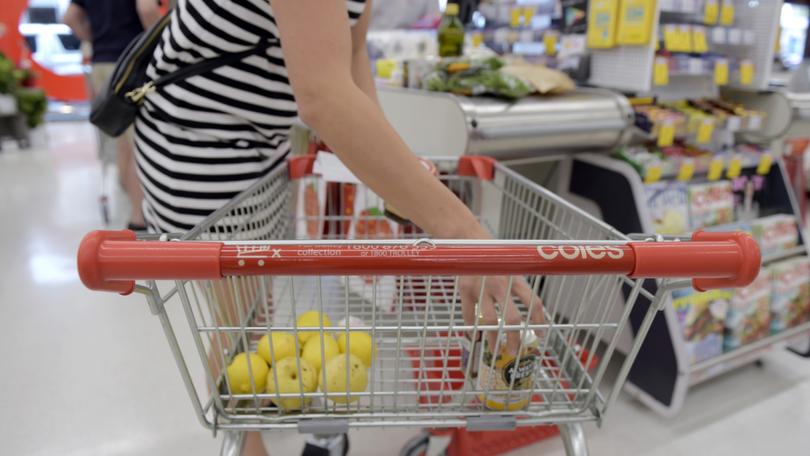Woolworths, Coles customers might be paying ‘loyalty tax’ for reluctance to switch stores, new study suggests
A new study suggests that big grocery retailers could be taking advantage of over-loyal customers who return to the same store no matter whether other supermarkets are offering cheaper prices.

Woolworths and Coles customers are likely paying “a loyalty tax” because of their reluctance to switch supermarket chains or stores.
A new study suggests that big grocery retailers could be taking advantage of over-loyal customers who return to the same store no matter whether other supermarkets are offering cheaper prices.
Author Matthew Elias, from economic research institute e61, said Australian grocery customers “display long-lasting inertia in their choice of supermarket”, with many doing most of their shopping at the same store “over long periods of time”.
Sign up to The Nightly's newsletters.
Get the first look at the digital newspaper, curated daily stories and breaking headlines delivered to your inbox.
By continuing you agree to our Terms and Privacy Policy.“This behaviour is likely to be reducing the degree of competitive rivalry between supermarkets,” Mr Elias said.
He found that 59 per cent of shoppers buy more than half of the groceries at a single store because of habit or convenience. Some 81 per cent of customers use just one supermarket chain, with loyalty programs often a key factor in their reluctance to switch.
Mr Elias said while more customers were paying more attention to grocery prices as living costs increased, “price comparison between supermarkets can be difficult for a basket of groceries and the complexity grows with the length of the shopping list”.
He suggests that government intervene to allow price comparison websites to offer prices on a tailored basket of groceries on a store-by-store basis.
“Although some supermarkets currently post prices online, not all do and it remains cumbersome for consumers to navigate across multiple websites,” Mr Elias said.
The research supports last month’s interim report from Australia Competition and Consumer Commission’s inquiry into supermarkets, which is probing the lack of competition between Coles and Woolworths amid claims they are abusing their market power and gouging customers and suppliers.
The ACCC report questioned the “broadly similar” pricing between the two chains, warning it would be a major focus of its investigation over the next few months.
Woolworths and Coles, which account for 67 per cent of Australia’s supermarket sales, are already facing hefty fines after being accused by the ACCC of misleading customers by faking discounts.
The report, commissioned by the Federal Government, said the two chains “appear to price at similar levels and offer similar non-price offerings”.
